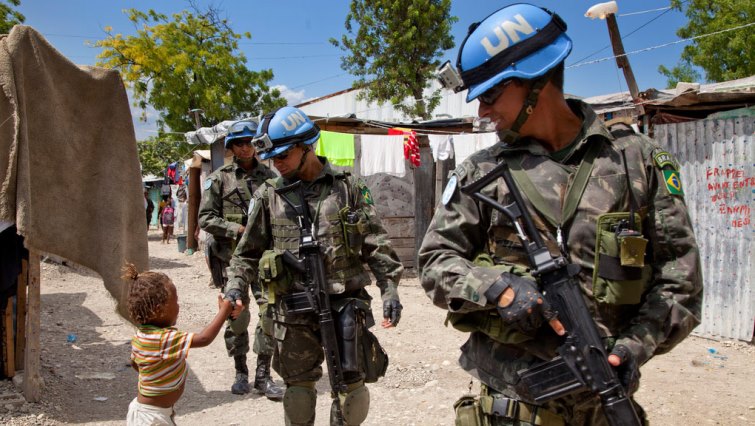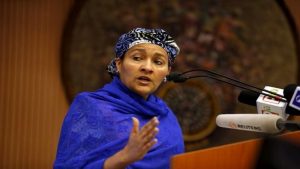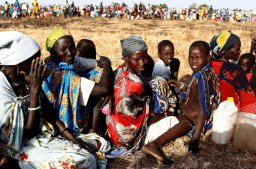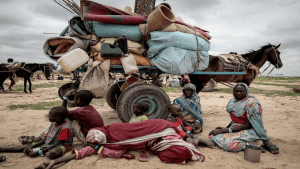A new report on improving security for United Nations Peacekeepers says the blue flag no longer offers natural protection and that peacekeeping operations need to change their posture and preparedness in the field.
The recommendations were submitted this week by a team of experts led by retired Brazilian Lieutenant General Carlos Alberto dos Santos Cruz, a former UN commander in Haiti and the Democratic Republic of Congo.
The report points to the changing environment in which peacekeepers now operate and proposes that they be better prepared to take offensive measures to eliminate the threats they increasingly encounter in the field.
195 personnel have been killed in acts of violence since 2013, with 56 deaths in 2017 alone – the highest number of fatalities in almost 25 years.
This prompted the UN Chief Antonio Gutteres to call for the review of security in peacekeeping operations.
His Under Secretary General for Peacekeeping, Jean-Pierre Lacroix says, “We also have to better understand our environment. What are the threats to better anticipate them, we have to make sure that there is cohesion throughout the chain of command, we have good leadership, that we implement the mandate evenly, that we better protect ourselves in the first place so there is a combination of measures but I think what the Cruz report says is if we want to perform well in peacekeeping in this new environment then there’s a number of things which we have to work on.”
The review calls for a change in mindset so that deployed personnel are aware of the risks while being empowered to prevent or respond to attacks; improving the capacities for peacekeepers so that they are better equipped and trained to operate in high-threat environments.
The report also recommends that the UN start replacing officials, contingents and units that lack capacity to carry out their mandates.
“It’s because we have these very different dangerous environments that we have to change and we have robust mandates so we have mandates that enable us to respond to these challenges but we’re not doing well enough in terms of implementing these mandates and as a result of that we have more fatalities and we don’t protect civilians as well as we should.”
La Croix was asked if changing the posture of peacekeeping would change its very foundation.
“We’re not waging war, we’re not an army, we have military and police but we’re not waging war. This is peacekeeping even though it can be peacekeeping in a very challenging and difficult environment. Peace enforcement is not for UN peacekeeping, it is for other forms of forces or interventions and I think that’s very clear. But at the same time we cannot ignore that where we are deployed, we have these very dangerous environments, people who are after us.”
The report says African peacekeeping contingents, most notably from Chad and Tanzania, have suffered the heaviest losses since 2013 while the UN mission in Mali is the most dangerous with 91 deaths in the same period.






